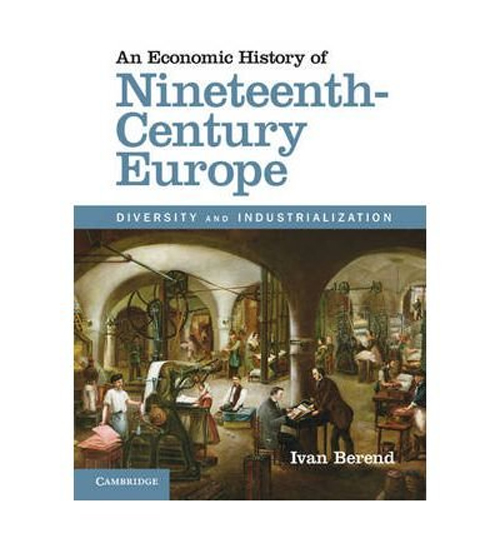An Economic History of Nineteenth-Century Europe: Diversity and Industrialization
Review

Ivan Berend - (Cambridge University Press), 2012
528pp., £23.99 paper, ISBN 978-1-107-68999-2
There has long been a need for a textbook on the ways in which the economy developed in nineteenth century Europe. This new transnational survey answers that need exploring the regional differences that shaped the economic course of European nations. Ivan Berend presents a clear explanation of the historical causes of advancement and backwardness, integrates social, political, institutional and cultural factors and engages in debates about the relative roles of knowledge, the state and institution. He explores why some countries and regions of Europe reach high levels of economic advancement in the nineteenth century, while other areas languished in the economic doldrums. The book explains the theories and macro-economic trends that dominated the century and their impact on the subsequent development of the European economy right up to the present day. Divided into three parts, the opening part consists of a chapter on gradual revolution. There are seven chapters on the successful industrial transformation of the West and five chapters on the peripheries, semi-success or the failure of modern transformation. What is particularly valuable is that these chapters do not confine themselves to the main European countries but include valuable material on the Baltic area, Finland and Ireland and the Balkans. There are also valuable boxed essays on key personalities such as Adam Smith, Friedrich List, Gustave Eiffel and the Krupp family, as well as brief histories of innovations such as the steam engine, vaccinations and the co-operative system. There is a detailed bibliography and well-structured index.

